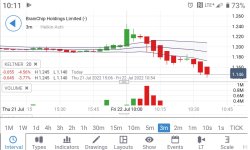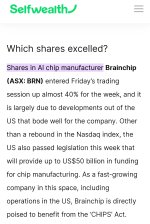F
Filobeddo
Guest
I lost my dark screen and don't know how to get it back, when I cleaned up my phone..
But, shorters trying to give the price a fair whack this morning..
View attachment 12181
They are shitting cinder blocks, in my opinion..
Yeah watching you shorting pricks




